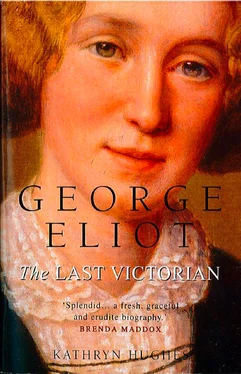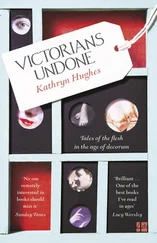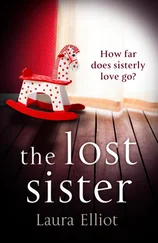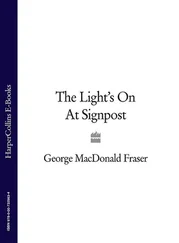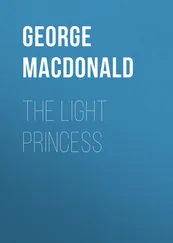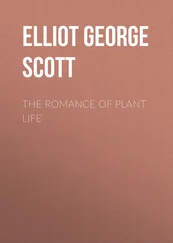Mary Ann then describes herself as responding: ‘I thought it possible we might come to terms, always provided he acceded to my irrevocable conditions. “For you must know, learned Professor,” I said, “that I require nothing more in a husband than to save me from the horrific disgrace of spinster-hood and to take me out of England.”’ 82 Professor Bookworm is clearly based on that German professor of theology to whom Mary Ann had already given up two years of her life, D. F. Strauss. And although she could not have known it at the time, it was Strauss who would, by a twisted turn of events, rescue Mary Ann from spinsterhood. In the meantime, however, it was another crisis altogether that would take her out of England.
CHAPTER 5
‘The Land of Duty and Affection’
Coventry, Geneva and London 1849–51
BY THE END of the 1840s, that most stormy of decades for Britain, life had been transformed for nearly everyone in Mary Ann’s circle. Unsettled by the revolutions in Europe, John Sibree had rebelled against his family culture, thrown over the ministry and opted for the precarious teaching and translating career of the self-supporting intellectual. The Brays’ silk business was under pressure from cheap foreign imports and Rosehill would never again be run with such expansive ease. Meanwhile Chrissey, the meek and mild Evans girl who had left little impression on anyone, had been quietly sinking into chronic poverty and ill-health. Unlike her canny businessmen brothers, the gentlemanly Dr Clarke was not good with money. During the middle decades of the century medicine was busy pulling away from its roots in the apothecary shop and fashioning itself into a profession. Improved training and practice was one way of doing it. Living like a gentleman was another. No longer content to be seen as a clever servant, the physician – doctor now ran an ‘establishment’, which rivalled that of his well-heeled patients. His front door was opened by a maid, his dinner served on fine china and his rounds made on a good horse. In practice, however, the cost of maintaining a conspicuously prosperous establishment often proved too much for an income that was far from secure. Just as Lydgate in Middle-march discovers that his natural inclination to live well cannot be supported from the fees he receives as a doctor newly arrived in the area, so Edward Clarke was increasingly unable to balance the books.
By 1842 the situation was so grim that Dr Clarke was forced to raise money by selling a house which had been left to his wife by her Uncle Evarard. Robert Evans, still playing his role as money lender to the feckless gentry, gave his son-in-law £250 for the Attleborough property and, a few months later, advanced him another £800 on loan to help move the whole family to Barford, near Warwick, for a new start. 1 But still it was not enough. Within three years Clarke was bankrupt and the whole family decamped in panic to Bird Grove. From this low point it recovered neither its health nor prosperity. Dr Clarke died in 1852, leaving six surviving children. Chrissey was left to do her ineffectual best, scrabbling around for cheap schooling and apprenticeships, and at one point even considering moving the household out to Australia. 2 In 1859, worn out by her own fertility and bad luck, Chrissey died at the age of forty-five.
Although Mary Ann continued to hunger for romantic love, her elder sister’s example offered a stern warning about its consequences. Gritty Moss, Mr Tulliver’s sister in The Mill on the Floss , is surely based on Chrissey. Described originally as ‘a patient, loosely-hung, child-producing woman’, 3 Mrs Moss has the hopeless look of someone defeated by too many babies and a husband who never manages to get into profit. As a married woman Chrissey had no rights to her own property – it was Edward Clarke, after all, who sold her house back to her father. If she was unfaithful, her husband could divorce her. If he had a lover, she was obliged to stay put. Whatever the reasons for a legal separation – and there were only a handful each year, among those wealthy and smart enough not to care what other people thought – the children automatically belonged to their father. Chrissey, as far as anyone knows, had no desire to end her marriage to Edward Clarke. But she had probably never wanted to give birth to nine children, a financial and physical strain that almost certainly hastened her death: her childless sister lived to sixty-one, her brother to seventy-four. Despite being married to a doctor, Chrissey seems to have had no access to the contraceptive knowledge that, only ten years later, would allow Mary Ann and Lewes to make the decision not to bring illegitimate children into the world.
Chrissey’s marriage was one of several which Mary Ann scrutinised as she approached her late twenties, those last-chance courtship years for a woman in the mid-nineteenth century. There were the Brays, with their advanced attitudes to sexual arrangements and sufficient money to support Mrs Gray and her brood of bastards. There was married, childless Fanny, who had time and energy to read the new higher criticism, but felt obliged to keep her opinions to herself. There were Isaac and Sarah, conventionally married and busy bringing up their four children to take their place among the professional classes. None of these were agonisingly miserable matches, but they were all compromised by wavering sexual attraction, intellectual incompatibility, or force of habit. Certainly none matched Mary Ann’s ideal of a true meeting of hearts and minds.
The fault, she concluded like many before and since, lay not with individual human failing, but with the institution of marriage itself. While marriages in Britain were not arranged in the literal sense, young middle-class people were often pressured by their families into engagements with people they barely knew. ‘How terrible it must be’, Mary Sibree remembered Mary Ann saying, ‘to find one’s self tied to a being whose limitations you could see and must know were such as to prevent your ever being understood!’ Far happier, Mary Ann concluded, was the Continental arrangement of dissolving marriages once affection had died. 4
These remarks, recalled in hindsight by Mary Sibree for John Cross, are suspiciously prophetic. Within fifteen years of making them, Mary Ann Evans was to become a notorious victim of Britain’s stringent divorce laws. But although Sibree probably polished up her tale for posterity, the ‘problem’ of marriage was a subject which engaged Mary Ann from the moment she first became aware of the competing pressures of family, personal and religious law. Her impulsive courtship of the picture restorer in the spring of 1845 had shown her how easy it was to rush into a marriage that would suit no one except the people who had arranged it, in this case her half-sister Fanny Houghton. During the holy war she had learned painfully that obedience and revolt in relation to an external law mattered far less than adherence to a complex inner truth.
In June 1848, during a dismal holiday with her failing father in St Leonards-on-Sea, Mary Ann clawed out a few hours to read the just-published Jane Eyre . As she sat huddled in a cold hotel, the book threw a sharp beam of light on to her own situation. Speaking of Rochester’s commitment to care for his mad wife, Mary Ann declared in a letter to Charles Bray: ‘All self-sacrifice is good – but one would like it to be in a somewhat nobler cause than that of a diabolical law which chains a man’s soul and body to a putrefying carcase.’ 5 She was quite aware that she, too, was chained soul and body to a putrefying carcass. But the difference between her situation and Rochester’s was that her chains were made not of an abstract law but the living, loving ties of human affection.
Читать дальше
